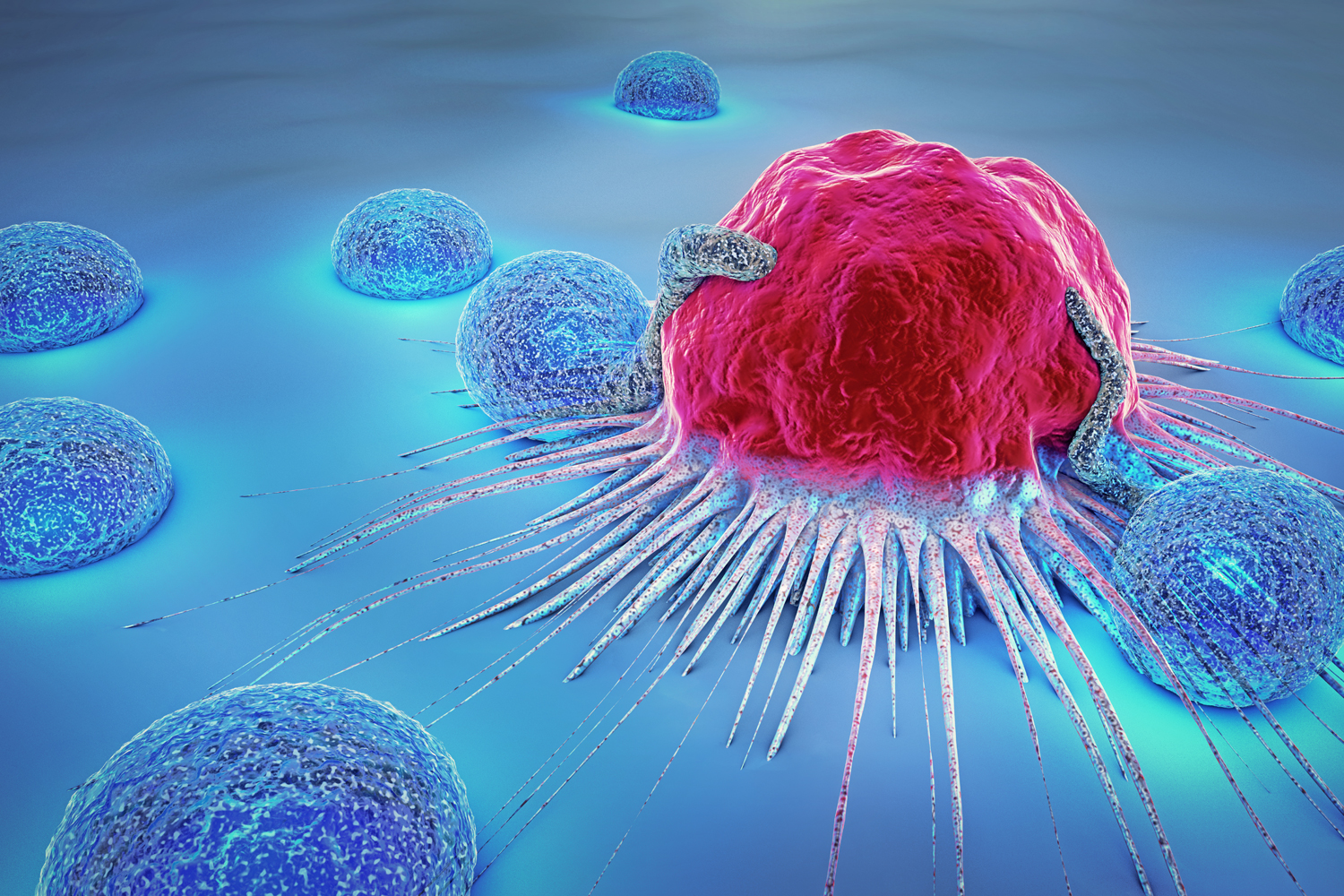Every week, the editors of Cancer Today magazine bring you the top news for cancer patients from around the internet. Stay up to date with the latest in cancer research and care by subscribing to our e-newsletter.
FDA Approves TIL Therapy for Melanoma
The Food and Drug Administration (FDA) has approved a tumor-infiltrating lymphocyte (TIL) therapy for advanced melanoma treatment, marking the first time a cell therapy has been authorized to treat a solid tumor. In TIL therapy, tumor-infiltrating lymphocytes—immune cells located inside the tumor—are extracted from the patient and replicated in a 22-day lab process while the patient receives chemotherapy. The replicated cells are then infused into the patient, who also receives interleukin-2, a drug that stimulates the immune cells. According to an NBC News report, TIL therapy is similar to CAR T-cell therapy, which has been approved for certain blood cancers, except it does not require cells to be genetically modified. On Feb. 16, the FDA granted accelerated approval to the TIL therapy Amtagvi (lifileucel) for use in adults with previously treated melanoma that cannot be surgically removed or has spread to other parts of the body. Of 73 people with melanoma who received Amtagvi in a phase II clinical trial, 31.5% responded to the drug, including three who had a complete response. Among those with a response, 43.5% had no disease progression one year later. A confirmatory phase III clinical trial is underway. While Amtagvi’s approval was just for melanoma, experts believe TIL therapy could work in other solid tumors. “It is our hope that future iterations of TIL therapy will be important for lung cancer, colon cancer, head and neck cancer, bladder cancer and many other cancer types,” Patrick Hwu, a tumor immunologist and CEO of the Moffitt Cancer Center in Tampa, Florida, which was a clinical trial site, told NBC News.
New Treatment Prolongs Survival in Mesothelioma
A drug that works by starving cancer cells of a crucial amino acid improved survival among people with mesothelioma, according to a study published online Feb. 15 in JAMA Oncology. Mesothelioma is a cancer that forms in the lining of the abdomen or chest, often caused by exposure to airborne asbestos particles. In an international phase II/III clinical trial, 249 people with pleural mesothelioma, the most common form of the disease, received standard chemotherapy along with either the drug pegargiminase or a placebo. Pegargiminase, also called ADI-PEG20, breaks down arginine, an amino acid the body uses to build proteins. While most healthy cells can produce their own arginine, mesothelioma cells cannot, so the drug essentially starves cancer cells of this essential amino acid. Researchers found participants who took pegargiminase were four times more likely to be alive three years after treatment than those who received the placebo. Median overall survival was 1.6 months longer in the pegargiminase group. “[This study] offers another much-needed treatment option and, above all, hope to those living with mesothelioma,” Liz Darlison, CEO of the nonprofit Mesothelioma UK, told the Guardian.
Additives in Ultraprocessed Foods Linked to Elevated Cancer Risk
Consuming additives commonly found in ultraprocessed foods is associated with increased cancer risk, according to a French study published online Feb. 13 in PLOS Medicine. Researchers looked at consumption of emulsifiers, a category of food additives that includes modified starches, pectins, xanthan gum, and mono- and diglycerides of fatty acids, Newsweek reported. Emulsifiers are commonly used in ultraprocessed foods like breads, cakes, cookies, condiments and ready-to-eat meals. In the study, 92,000 adults completed diet records for an average of 6.7 years. Researchers found high intake of mono- and diglycerides of fatty acids—often used in baked goods, frozen foods, margarine and mayonnaise—was associated with a 15% higher overall cancer risk, a 24% higher breast cancer risk and a 46% higher prostate cancer risk compared with low consumption. Additionally, high intake of carrageenans—additives extracted from seaweed and used to thicken foods such as dairy products and deli meats—was associated with a 32% higher breast cancer risk. “While these findings need to be replicated in other studies worldwide, they bring new key knowledge to the debate on re-evaluating the regulations around the use of additives in the food industry, in order to better protect consumers,” two of the study’s authors, epidemiology researchers Mathilde Touvier, of the French National Institute of Health and Medical Research, and Bernard Srour, of France’s National Research Institute for Agriculture, Food and Environment, said in a press release.
Cancer Today magazine is free to cancer patients, survivors and caregivers who live in the U.S. Subscribe here to receive four issues per year.





